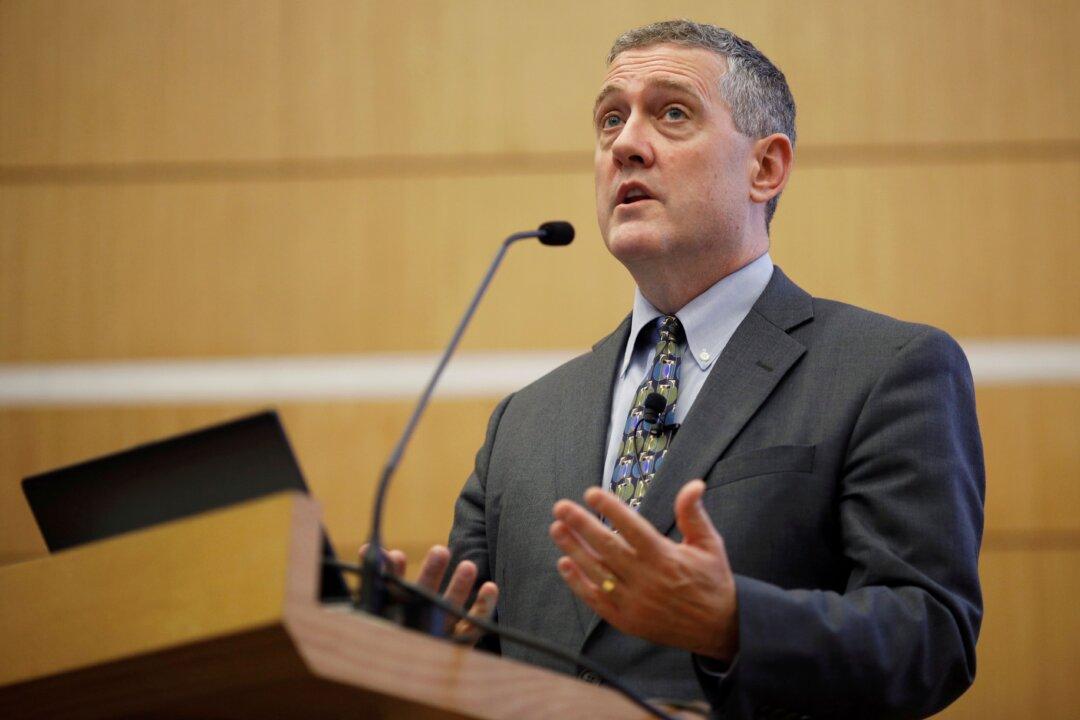WASHINGTON—The U.S. Federal Reserve should “tack in a more hawkish direction” over its next couple of meetings to prepare in case inflation does not begin to ease, St. Louis Federal Reserve bank president James Bullard said on Tuesday.
“If inflation happens to go away we are in great shape for that. If inflation doesn’t go away as quickly as many are currently anticipating it is going to be up to the (Federal Open Market Committee) to keep inflation under control,” Bullard said on Bloomberg Television.





